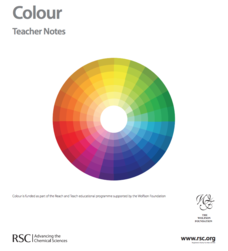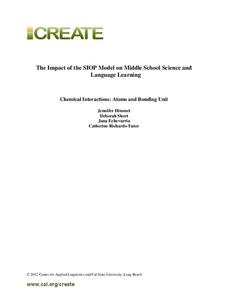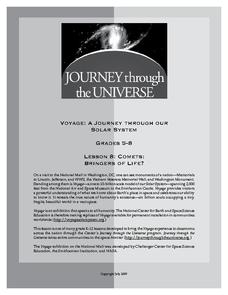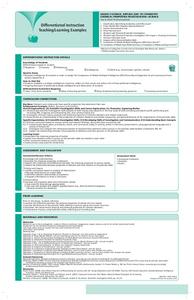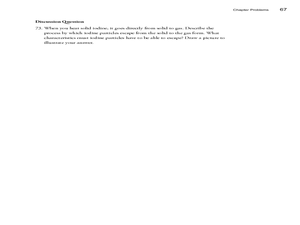Royal Society of Chemistry
Colour—Gifted and Talented Chemistry
Add a splash of color to your chemistry class! Science scholars discover the principles behind color through a wide variety of hands-on activities. Lessons include dyes, chromatography, and flame tests.
Royal Society of Chemistry
Elements 1
The periodic table can be a little overwhelming to young scientists. Meet your class' worries head on by introducing the table in a game. Individuals test their knowledge of the names and symbols of common elements, then use deductive...
Royal Society of Chemistry
Extraction of Copper
Is copper found as a raw material? Science sleuths manipulate the reactants and products found in the copper extraction process in a series of fun puzzles. The interactive engages learners in pairing formulas with their names while using...
Royal Society of Chemistry
Alloys
What are alloys, and why do we use them? Through a series of interactive puzzles, scholars examine the components and uses of several common alloys. The accompanying teacher's resources provide support in using the lesson, printable...
Royal Society of Chemistry
Elements 4
Don't miss the silver lining when you are looking for gold. A brain-bending interactive allows scholars to sharpen their puzzle skills while reviewing chemical elements, including silver and gold. First, pupils match 12 chemical elements...
Laboratory for Atmospheric and Space Physics
Explore Saturn and Titan with Spectral Data
Titan is Saturn's largest moon and has its own atmosphere. An attention-grabbing tutorial allows learners to analyze the spectrum of Saturn and Titan to determine their elemental compositions. Scholars compare a known element's spectrum...
University of Colorado
Using Spectral Data to Explore Saturn and Titan
Saturn's rings are made of dust, ice, and solid chunks of material. Individuals use spectrographs in this final installment of 22 lessons to determine the atmospheric elements. They analyze spectrums from Titan's atmosphere and Saturn's...
Jefferson Lab
The Periodic Table of Elements
A study of the periodic table of elements doesn't have to be elementary! Deepen understanding of the building blocks of chemistry with an interactive periodic table. At first sight, the table looks like a standard reference page, but a...
Teach Engineering
Flame Test: Red, Green, Blue, Violet?
Let the true colors shine through. Pupils conduct a flame test to identify an unknown element. Class members calculate and prepare specific molarity solutions of three chemicals. Using their observations of the colors emitted, they...
Center for Applied Linguistics
Chemical Interactions: Atoms and Bonding
Watch budding chemists interact with the resource on chemical interactions. In the unit, six lessons provide an overview of basic chemistry, from understanding the development of atomic theory to distinguishing between ionic and covalent...
Journey Through the Universe
Comets: Bringers of Life?
Young scientists investigate the elements found in our solar system and then construct a model of a comet. They apply their new knowledge to the formation of the solar system.
It's About Time
Atoms with More Than One Electron
Provide young chemists with the ability to manipulate atoms and predict their results, in this sixth lesson. Pupils analyze energy patterns as they predict the amount of energy required to remove electrons from atoms. They compare trends...
It's About Time
Atoms and Their Masses
Are atoms too small to be isolated? Answer this question and more as you provide young chemists with the tools to conduct a hands-on activity demonstrating atomic mass. Pupils explore the mass of copper and aluminum, compare Dalton's...
It's About Time
Elements and Their Properties
How did ancient scientists classify elements? Answer this question and others as young chemists create a device to test the properties of various elements. They classify elements as metals or nonmetals, learn to differentiate between...
EduGAINs
Chemical Properties Investigation
This lesson demonstrates differentiated instruction at its best. Over the course of 2-3 class periods, young chemists have the opportunity to gain a thorough understanding of metals and their chemical properties from a variety of...
University of Georgia
Bag O' Isotopes
Accommodate your chemistry class with an experiment that is both entertaining and educational. Through the activity, blossoming chemists perform calculations on various isotopes, as represented by beans and legumes, to obtain the average...
Aquarium of the Pacific
Lego Molecules
Young scientists construct an understanding of molecular compounds in this hands-on science lesson plan. Using LEGO® to model the atoms of different elements, students build molecules based on the chemical formulas of common compounds.
It's About Time
Organizing a Store
When provided with multiple objects, how many ways can the class organize and display them based on predetermined factors? Assist class members with a handy activity—theoretically teaching them concepts to understand periodic table...
Curated OER
The Structure of Matter and the Chemical Elements
For this chemistry worksheet, students answer 73 fill in the blanks and multiple choice questions on the structure of matter and properties of elements in the periodic table.
Curated OER
Chemical Elements: Student Story 3
In this chemical elements: student story 3 worksheet, students complete the written story by filling in the blanks with the names of the elements in brackets.
Curated OER
Letter Puzzles
In this letter puzzle instructional activity, learners solve 2 puzzles given a list of letters. Students determine the relationship between the set of letters.
Curated OER
Science Quiz: Chemical Elements
In this science quiz: chemical elements worksheet, students name the correct symbol for the first 110 chemical elements in the periodic table, with the answers given at the bottom of the page.
Curated OER
Getting Animated
Learners create a simple animation illustrating a chemical element in the periodic table. In this chemistry lesson plan, students create a new way to describe elements by using them in an artistic form.
Curated OER
Students Get Animated: Make Existing Lessons Move and Motivate Students
Students study the chemical elements in a computer generated cartoon format. In this computer animation and chemistry lesson, students learn how to animate using computer programs. Students use animation to learn about the Periodic Table...


